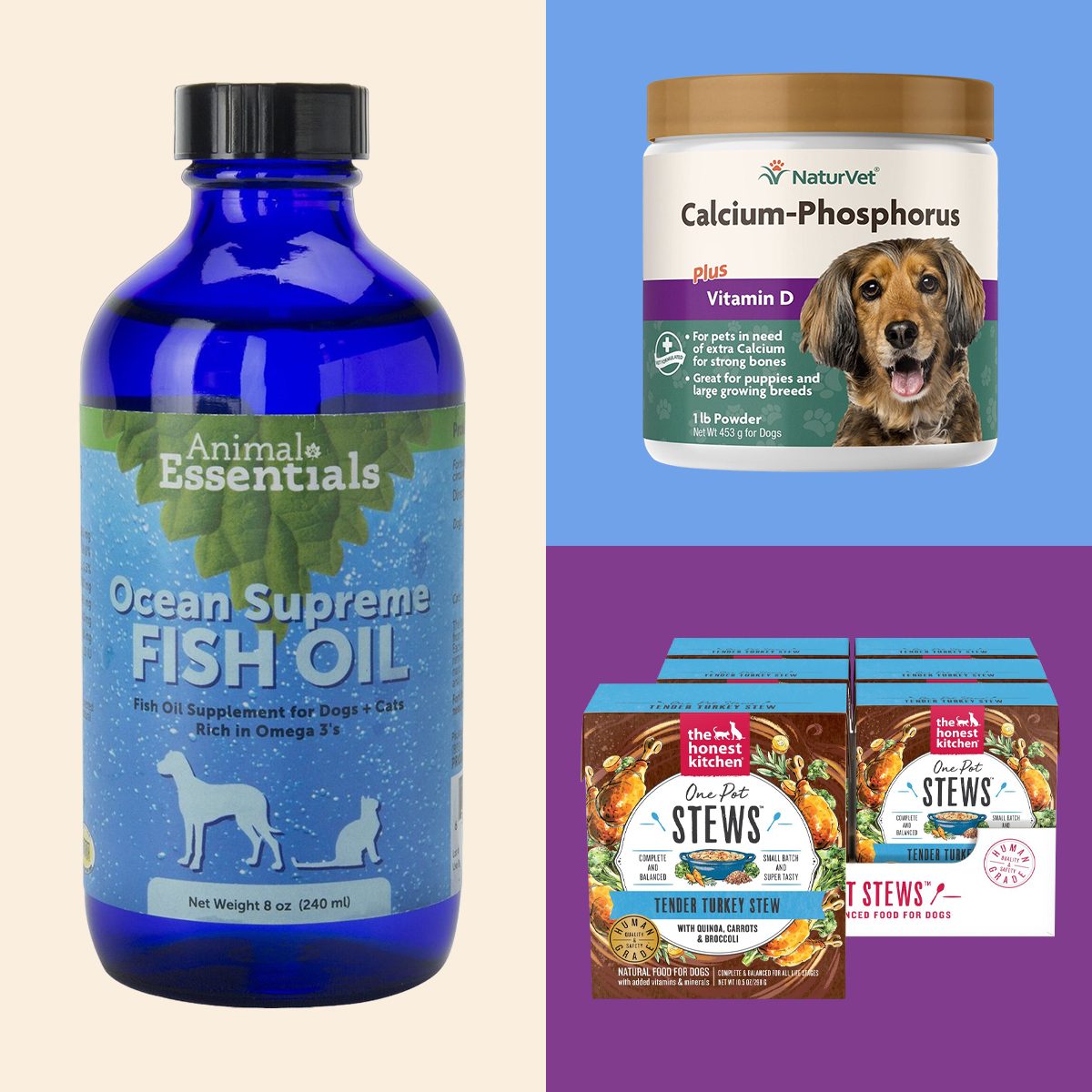Studies have found that those with lower levels of vitamin D had a higher risk of developing different types of cancer, says Dr. Sung. “Calcitriol, a derivative of vitamin D, has anti-tumor properties that slow or stop the growth of cancer cells,” she says.
Foods such as salmon, mushrooms and eggs are naturally rich in vitamin D, but if yours doesn’t eat those, you may wonder if a supplement is warranted. But you should be careful when giving vitamin D to your dog without vet guidance, says Angie Krause, DVM, a holistic veterinarian at Boulder Holistic Vet and ambassador for dog food brand I And Love And You. Because this vitamin is fat-soluble, it’s possible for your dog to consume too much, which can make them sick.
Speak with your veterinarian about whether vitamin D is a good supplement to add to your dog’s diet, and only give them carefully measured quantities. Many dog multi-vitamins contain small, safe amounts of vitamin D, such as NaturVet Calcium-Phosphorus Plus Vitamin D Powder.




























